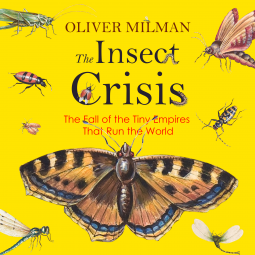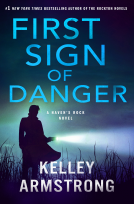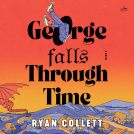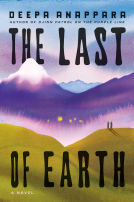Please wait... This may take a moment.
The Insect Crisis
The Fall of the Tiny Empires That Run the World
by Oliver Milman
Narrated by Liam Gerrard
This title was previously available on NetGalley and is now archived.
Pub Date
Mar 01 2022
| Archive Date
Mar 01 2022
Thank you! Your input is valuable to us, and will be shared with the publisher.
Please sign in to submit your valuable feedback.
Sign In or Register Now.
Description
From ants scurrying under leaf litter to bees able to fly higher than Mount Kilimanjaro, insects are everywhere. Three out of every four of our planet's known animal species are insects. In The Insect Crisis, Oliver Milman dives into the torrent of recent evidence that suggests this kaleidoscopic group of creatures is suffering the greatest existential crisis in its remarkable 400-million-year history. What is causing the collapse of the insect world? And what can be done to stem the loss of the miniature empires that hold aloft life as we know it?
Milman explores this hidden emergency, arguing that its consequences could even rival climate change. He joins the scientists tracking the decline of insect populations across the globe, including the mountains of Mexico that host an epic, yet dwindling, migration of monarch butterflies; the verdant countryside of England that has been emptied of insect life; the gargantuan fields of US agriculture that have proved a killing ground for bees; and an offbeat experiment in Denmark that shows there aren't that many bugs splattering into your car windshield these days. These losses not only further tear at the tapestry of life on our degraded planet; they imperil everything we hold dear, from the food on our supermarket shelves to the medicines in our cabinets to the riot of nature that thrills and enlivens us.
From ants scurrying under leaf litter to bees able to fly higher than Mount Kilimanjaro, insects are everywhere. Three out of every four of our planet's known animal species are insects. In The...
Description
From ants scurrying under leaf litter to bees able to fly higher than Mount Kilimanjaro, insects are everywhere. Three out of every four of our planet's known animal species are insects. In The Insect Crisis, Oliver Milman dives into the torrent of recent evidence that suggests this kaleidoscopic group of creatures is suffering the greatest existential crisis in its remarkable 400-million-year history. What is causing the collapse of the insect world? And what can be done to stem the loss of the miniature empires that hold aloft life as we know it?
Milman explores this hidden emergency, arguing that its consequences could even rival climate change. He joins the scientists tracking the decline of insect populations across the globe, including the mountains of Mexico that host an epic, yet dwindling, migration of monarch butterflies; the verdant countryside of England that has been emptied of insect life; the gargantuan fields of US agriculture that have proved a killing ground for bees; and an offbeat experiment in Denmark that shows there aren't that many bugs splattering into your car windshield these days. These losses not only further tear at the tapestry of life on our degraded planet; they imperil everything we hold dear, from the food on our supermarket shelves to the medicines in our cabinets to the riot of nature that thrills and enlivens us.
Advance Praise
"The Anthropocene abounds in environmental parables made real, and harrowing. Oliver Milman has delivered a gripping and especially unnerving one: what happens when the bugs go? The top of the food chain is a happy place to be only so long as there remains a food chain to stand on top of, and, as Milman deftly illustrates, in the face of die-offs too widespread to closely track, we are rushing headlong into a precarious and uncertain future." ―David Wallace-Wells, author of The Uninhabitable Earth
"Perhaps you read a news item in the last few years about collapsing insect populations. Oliver Milman has done the hard work to put such fragments in context, and the result is a book that will be a classic on the day it’s published. Our world is literally unimaginable without the insects that make it work, and so heeding the lessons in this volume is essential to our collective future." ―Bill McKibben, author of Oil and Honey
"The Insect Crisis is elegantly written, admirably nuanced, and terrifyingly important." ―Michelle Nijhuis, author of Beloved Beasts: Fighting for Life in an Age of Extinction
"The Anthropocene abounds in environmental parables made real, and harrowing. Oliver Milman has delivered a gripping and especially unnerving one: what happens when the bugs go? The top of the food...
Advance Praise
"The Anthropocene abounds in environmental parables made real, and harrowing. Oliver Milman has delivered a gripping and especially unnerving one: what happens when the bugs go? The top of the food chain is a happy place to be only so long as there remains a food chain to stand on top of, and, as Milman deftly illustrates, in the face of die-offs too widespread to closely track, we are rushing headlong into a precarious and uncertain future." ―David Wallace-Wells, author of The Uninhabitable Earth
"Perhaps you read a news item in the last few years about collapsing insect populations. Oliver Milman has done the hard work to put such fragments in context, and the result is a book that will be a classic on the day it’s published. Our world is literally unimaginable without the insects that make it work, and so heeding the lessons in this volume is essential to our collective future." ―Bill McKibben, author of Oil and Honey
"The Insect Crisis is elegantly written, admirably nuanced, and terrifyingly important." ―Michelle Nijhuis, author of Beloved Beasts: Fighting for Life in an Age of Extinction
Available Editions
| EDITION |
Other Format, Unabridged
|
| ISBN |
9781696607445 |
| PRICE |
$19.99 (USD)
|
| DURATION |
8 Hours, 9 Minutes |
Additional Information
Available Editions
| EDITION |
Other Format, Unabridged
|
| ISBN |
9781696607445 |
| PRICE |
$19.99 (USD)
|
| DURATION |
8 Hours, 9 Minutes |
Average rating from 20 members
Readers who liked this book also liked:
Whidbey
T Kira Madden
Literary Fiction, Mystery & Thrillers, Women's Fiction
Discipline
Larissa Pham
General Fiction (Adult), New Adult
Yesteryear
Caro Claire Burke
General Fiction (Adult)
Super Nintendo
Keza MacDonald
Business, Leadership, Finance, Entertainment & Pop Culture, Nonfiction (Adult)




















